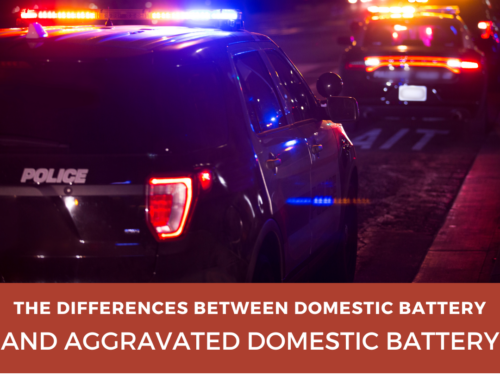Navigating the legal system can be challenging, especially when you’re facing domestic battery charges in Illinois. To better understand the charges and potential consequences, it’s essential to know the legal definition of domestic battery in Illinois and the related laws.
Understanding the Legal Definition of Domestic Battery in Illinois
This guide explains the following:
- The Legal Definition of Domestic Battery
- The Different Categories of Domestic Battery
- The Role of Protective Orders
- Aggravating Factors That Can Increase Penalties
- The Importance of Legal Representation
Here’s a closer look at each.
The Legal Definition of Domestic Battery
Domestic battery in Illinois is defined as knowingly causing bodily harm or making physical contact of an insulting or provoking nature with a family or household member. This includes spouses, former spouses, parents, children, stepchildren, persons who share or previously shared a residence, and individuals who have a child in common or are related by blood or marriage.
Related: Is there a statute of limitations on domestic battery in Illinois?
The Different Categories of Domestic Battery
There are two primary categories of domestic battery in Illinois: simple domestic battery and aggravated domestic battery. Simple domestic battery is generally charged as a Class A misdemeanor, while aggravated domestic battery is a more severe charge and typically involves severe bodily harm, permanent disfigurement, or the use of a deadly weapon.
Related: What to expect during your domestic battery trial
The Role of Protective Orders
In many domestic battery cases, a protective order may be issued to protect the alleged victim. These orders can have a significant impact on your life, as they often require you to stay away from the alleged victim, their home, and their workplace. Violating a protective order can lead to additional criminal charges, so it’s essential to understand and comply with the terms of the order.
Aggravating Factors That Can Increase Penalties
Certain factors can result in more severe penalties for domestic battery charges in Illinois. These aggravating factors include prior domestic battery convictions, violating a protective order, causing severe bodily harm or disfigurement, or using a deadly weapon during the commission of the crime. If any of these factors apply, you may face increased fines, longer prison sentences, or both.
The Importance of Legal Representation
Facing domestic battery charges in Illinois can be overwhelming, and it’s crucial to have skilled legal representation to help you navigate the process. An experienced attorney can protect your rights, negotiate with prosecutors, present evidence in your favor, and advocate for you in court. Attempting to handle the case on your own can lead to costly mistakes and a worse outcome.
Related: Your lawyer’s role in your domestic battery case
Understanding the legal definition of domestic battery in Illinois is essential when facing these charges. Being informed about the categories of domestic battery, the role of protective orders, aggravating factors, and the importance of legal representation can help you feel more prepared and in control of your situation. Always consult with a knowledgeable attorney to ensure the best possible outcome for your case.
Do You Need to Talk to an Attorney About Domestic Battery Defense?
If you need to talk to a domestic battery defense attorney in Illinois, we’re here to help. Call us at 847-920-4540 now – we’ll be happy to give you a free consultation and talk to you about your options.







Leave A Comment
You must be logged in to post a comment.